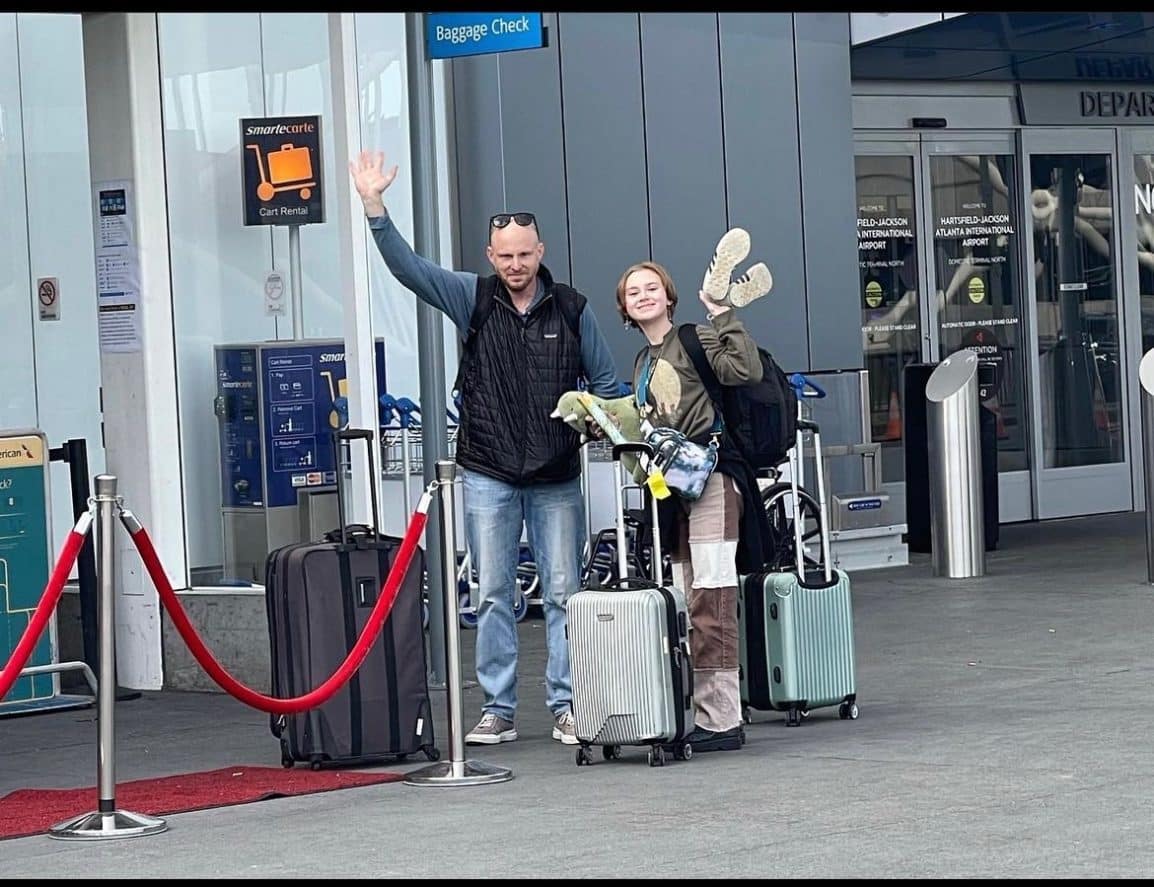For eighth grader Ashe Moran, age is no barrier to an international learning experience.
While it is not atypical for students to pursue study abroad programs in college, doing so before then is rare for most American teens. In fact, according to the Council on International Exchange, only about 2% of U.S. students study abroad before graduating high school.
Study Abroad
Moran falls within that 2%. For the past three months, she has been living and learning in Germany, residing with a host family whose connection to her is nothing short of serendipitous.
“My mother was friends with a foreign exchange student in high school,” she said. “She was from Germany, and now she is my host mother.”
Moran explained that, after becoming friends in America, her mother went to live with her friend’s family in Germany for her own study abroad experience. During these years, the two girls made a promise to each other that they would eventually send their children to their respective countries.

Moran’s mother and host mother as teenagers as Germany (Photo by Ashe Moran)
Though Moran remembers conversations about this fabled beginning as early as fifth grade, unexpected events like Covid-19 required her family to continually push back their plans.
Unexpected Friends
In December 2022, she finally fulfilled her mother’s dream, becoming the first of the families’ second-generation exchange students.
“It was so strange that it was becoming reality,” she laughed. “We had just talked about it for such a long time.”
As teachers and friends found out about the trip, Moran remembers them seeming more worried than she was about being so far from home. Some even advised her not to go, fretting that she would be lonely without her friends or behind in her education.
School Support
Under the guidance of Mrs. Coffey, a faculty member at HMS and longtime mentor to Moran, she was able to set these negative perspectives aside. Coffey, who studied abroad in England as a teenager, reinforced Moran’s excitement and prepared her for the transformative experience.
“She told me it was going to be terrifying,” Moran said. “But she also told me I would have the experience of my life, and that I could do this.”
Bolstered with newfound courage, Moran endeavored to embrace all that Germany had to offer. To do so, her host family challenged her to speak only German, even when she was at home. Moran also attended a German school, where all of her classes were instructed entirely in German. This provided an added burden to her coursework, which was already advanced.
Eventually, though, the language barrier began to diminish. After her first two months abroad, Moran was able to have complete conversations with her host sister, a goal she had established early on in her journey.
“You spend a while being anxious and confused,” she said. “But you eventually get to a point where you start picking up more vocabulary each day.”
It is because of this that Moran wishes she could have stayed in Germany longer. Although she picked up more German than she had ever learned in class, she believes that it takes closer to six months to form lasting comfort with a new language.
“Your brain adjusts that this is now your home and residence,” she said. “You realize that you’re not just there for vacation; you have to pick it up.”
Acclimation to a New Life

Moran bundles up for German winter (Photo by Ashe Moran)
To further integrate into German school, Moran also began taking Italian classes. In Europe, the practice of studying multiple languages becomes part of the educational system at an early age. By the time students reach high school, many are proficient in German, English, French, and sometimes additional languages.
“Every single person spoke at least three languages,” Moran recalled. “I definitely think it is something the U.S. needs to implement… it leads [students] to be so much more intelligent.”
Aside from the language barrier, one of the biggest challenges for Moran was the time difference between Germany and the U.S. Being seven hours ahead of her friends and family made communication difficult, leading her to occasionally stay awake until the early hours of the morning so she could speak with friends before they went to school.
Forever Friendships
In spite of this, Moran maintained strong relationships with those who matter most. She talked with her mom “almost every day” and would Facetime her father weekly to watch their favorite TV show together.
When asked about advice for prospective study abroad students, Moran simply says that, “[You] need to do it.” She also believes that self-confidence and perseverance are necessary for any great international experience.
“Don’t say you’re just scared of it,” she encouraged. “It doesn’t matter – you can make some of your closest friends ever.”
Coming Back Home
Now back in Homewood, Moran is preparing her freshman year of high school. She recently made the Color Guard team and will perform alongside the band at halftime next year. Along with Guard, she plans to continue studying German. While her life in Homewood will certainly look different than it did life overseas, she has no doubt that the lessons she learned abroad will remain with her for the rest of her life.
“I learned a lot about myself,” she said. “You realize that you could do a lot more things than you thought you could; I have a whole new perspective.”
Continue to see why you should study a foreign language, our GirlSpring contributor Helen Johnson shares why it can be a fun experience!






